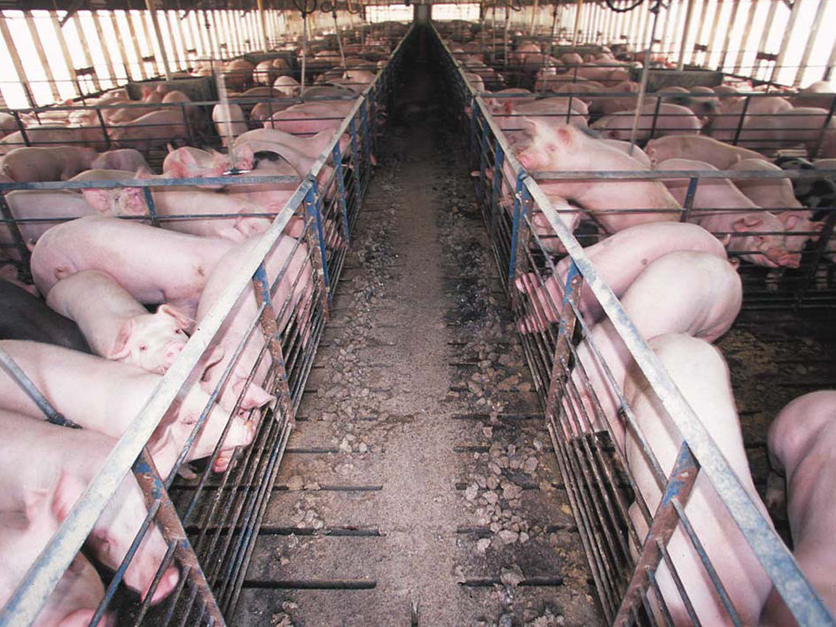Senate opposition is growing against the inclusion of Sen. Roger Marshall and Rep. Ashley Hinson’s Ending Agricultural Trade Suppression (EATS) Act in the 2023 farm bill. A bipartisan group of 30 senators wrote a letter to Senate Agriculture Committee leaders outlining their concerns with the EATS Act, which they say is aimed at overturning California’s Proposition 12, which mandates animal housing standards.
The letter says if enacted, the EATS Act would “drastically broaden the scope of federal preemption.” The range of potentially affected laws “includes measures aimed at protecting states from invasive pests and infectious disease, health and safety standards, consumer information safeguards, food quality and safety regulations, animal welfare standards and fishing regulations.”
Signees of the letter include California Democrat senators Dianne Feinstein and Alex Padilla, as well as Republican Sen. Susan Collins of Maine.
FMMO hearing hits one-week mark
Milk composition formulas have been the first major topic tackled after a week into the Federal Milk Marketing Order Pricing Formula hearing, which started Aug. 23 in Carmel, Indiana.
The FMMO hearing is anticipated to last several weeks as USDA learns from witnesses on six subject areas identified as part of the scope of the hearing. Since a hearing of this nature hasn’t occurred in 23 years, testimony is long with extensive cross-examination by USDA staff.
Stephen Cain, National Milk Producers Federation director of economic research and analysis, told Agri-Pulse that the hearing is progressing as expected, albeit slowly. “We’re making progress. And we’ll continue to do that until we get everything heard. And hopefully we’ll come up with a good outcome,” he says.
Cain says NMPF is advocating for a “commonsense change to make sure that the skim milk composition formulas are in line with the actual milk production of the U.S. milk supply.”
American Farm Bureau Federation Chief Economist Roger Cryan testified on Monday on the Farm Bureau’s proposal, which supports updating the formula for skim milk to account for the butterfat and skim milk markets.
NMPF had a dairy farmer, who is also an active Farm Bureau member, testify on behalf of their proposal Friday.
Analysis: Soy industry has $124 billion impact on US economy
The National Oilseed Processors Association and United Soybean Board are touting a new study they commissioned that shows the U.S. soybean industry contributed a yearly average of $124 billion to the U.S. economy over three years.
“As indicated by this study’s findings, the economic contributions of the soybean processing and refining sectors to the U.S. economy are substantial, connecting soybean farmers with end users,” said NOPA President Thomas Hammer. “Soybean processors convert soybeans into meal and oil. These value-added products are used in food, feed, industrial products and biofuels, supporting billions of dollars in domestic wages and tens of thousands of good paying jobs in the United States.”
Report: White House needs focus on lock and dam upgrades, water usage efficiencies
The Biden Administration should create an “investment plan” for upgrading locks and dams that prioritizes transportation needs and focuses on making agriculture in water-strapped regions more water-efficient, according to a new report from the President’s National Infrastructure Advisory Council.
Don't miss a beat! Sign up for a FREE month of Agri-Pulse news! For the latest on what’s happening in agriculture in Washington, D.C. and around the country, click here.
The report recommends that the White House incentivize farmers in water-scarce regions to plant less water-intensive crops, help install drip irrigation systems, reform crop insurance to “incentivize climate adaptation by farmers” and create a “comprehensive, objective national drought index” that includes reservoir levels, aquifer status and soil moisture measurements.
The report also says drinking water should be prioritized over agriculture water during drought emergencies, though producers should be compensated following the disaster.
The National Infrastructure Advisory Council is a 30-member panel that advises the White House on ways to “improve the security and resilience of the nation’s critical infrastructure sectors,” according to its website.
China cuts off Japanese seafood imports
China has halted all seafood imports from Japan ahead of Japan’s plans to dump more than 1 million metric tons of treated radioactive water from the Fukushima nuclear power plant into the Pacific Ocean, according to a report from USDA’s Foreign Agricultural Service.
The Chinese ban severs hundreds of millions in trade, but may clear the way for international competitors to benefit. Japan exported about 155,000 metric tons of seafood – including mostly frozen fish and mollusks - to China in 2022, while the U.S. shipped about 280,000 tons.
Texas woman arrested for cattle theft, spying on mother
The Texas & Southwestern Cattle Raisers Association says its rangers tracked down Belinda Perez for stealing four head of cattle and two trailers from her mother. The rangers said they also found and removed camera equipment from Belinda Perez’s mother’s house that she said was being used to spy on her.
Belinda Perez confessed to the crimes and the rangers recovered the two trailers, but the cattle had already been sold at auction, according to TSCRA. The rangers “also located the surveillance camera on the victim’s property.”
Jacqui Fatka and Noah Wicks contributed to this report. Questions, comments, tips? Email bill@agri-pulse.com




